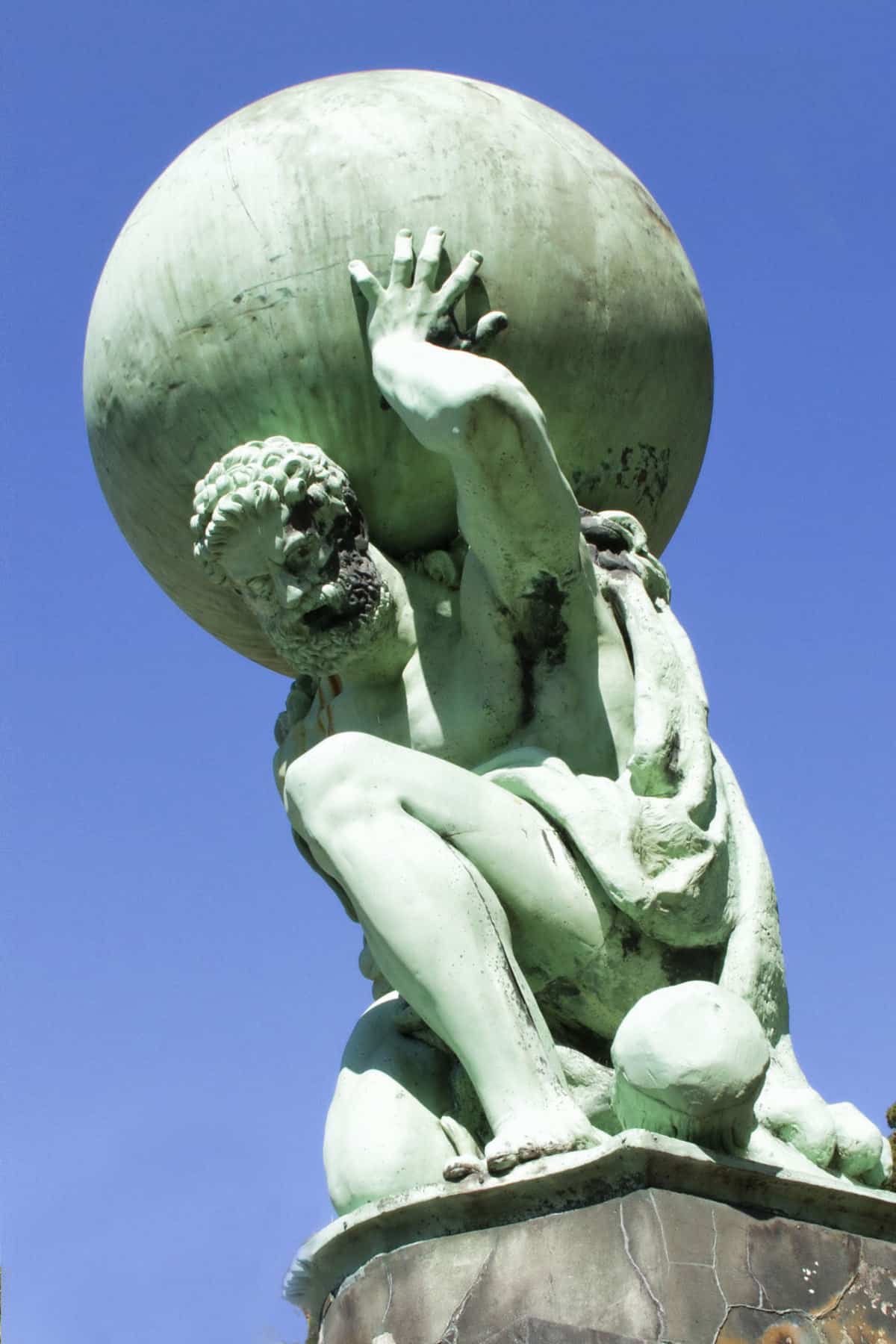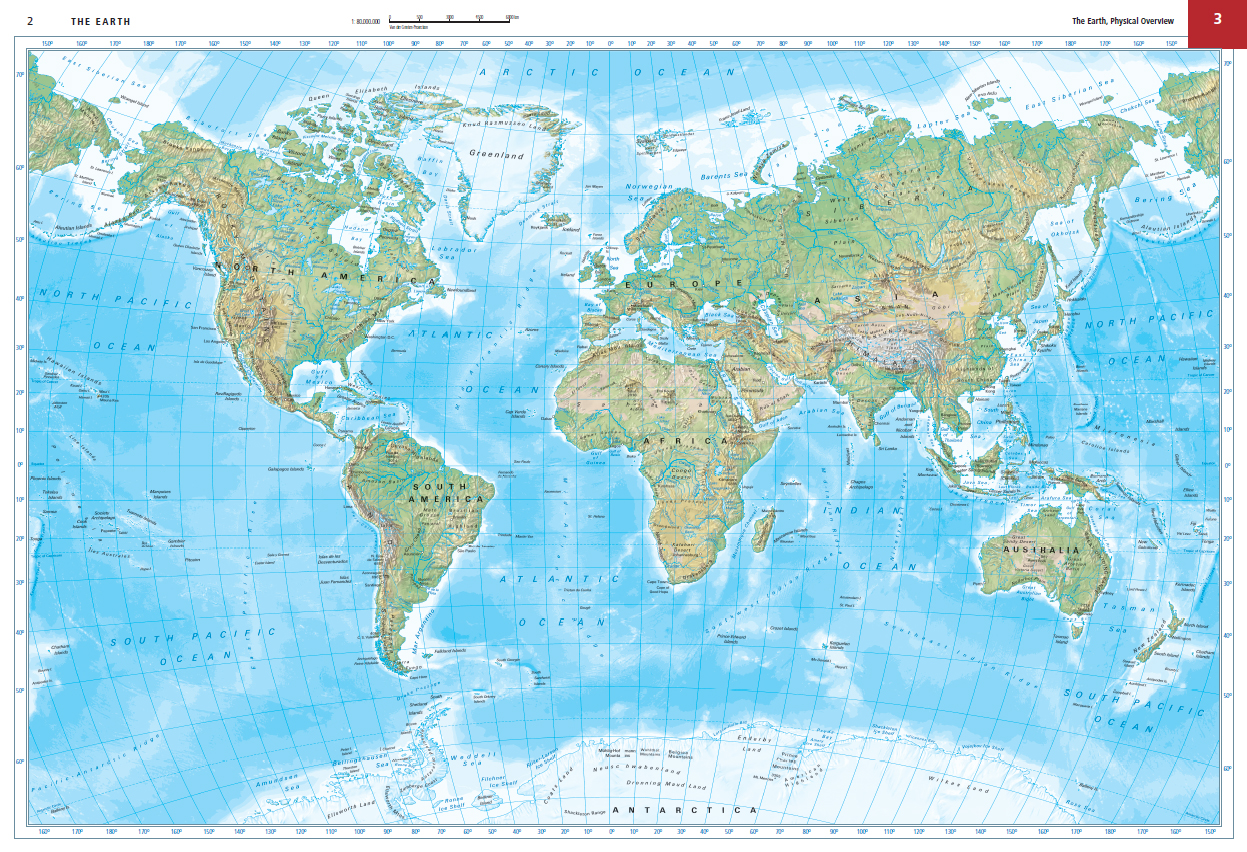Atlas Pollster - Unpacking Election Insights
When we think about who helps us make sense of the big political happenings, certain names just sort of pop up, don't they? One of those names that really seems to be making waves, you know, in the world of figuring out public opinion, is Atlas. It's almost like a powerful magnet, drawing in some of the very best people who work in polling, the ones who really know their stuff and deliver top-notch results. This kind of influence, too, means that when Atlas puts out its findings, it can, well, quite literally shape how we all talk about things, especially when it comes to what people think about different political groups or figures.
So, you might wonder, what does this actually mean for how we hear about things? Well, if Atlas, for instance, shows that a particular political group isn't as popular as some might believe, then the news outlets and various media channels might, in some respects, really lean into that story. They could, you know, spend a whole lot of time over the warmer months discussing how certain politicians or parties are perceived by the public. This kind of focus, you see, can really make people think about things in a certain way, almost guiding the general conversation.
It's not just about broad strokes, though; Atlas also digs into some pretty specific questions, like asking people whom they might trust more to handle particular situations between, say, two well-known political figures. This kind of detailed inquiry really helps paint a clearer picture of public sentiment, giving us, in a way, a much better idea of what's truly on people's minds. It’s about getting to the heart of those important choices folks are faced with.
Table of Contents
- What Makes an Atlas Pollster Stand Out?
- How Does Atlas Pollster Measure Up?
- Beyond the Numbers - What Tools Does Atlas Pollster Offer?
- What's Next for the Atlas Pollster?
What Makes an Atlas Pollster Stand Out?
You might be curious, what exactly sets an Atlas pollster apart from the rest, you know, in this very busy field? Well, it's pretty clear that they have a way of doing things that really catches the eye. For one, they operate with a kind of method that, apparently, is just very effective at getting good results. This means that other groups and individuals who are serious about getting good information, the ones who are really committed to quality work, tend to gravitate towards what Atlas is doing. It’s like a benchmark, in a way, for how precise and useful polling can be.
Their approach, so it seems, really helps to pull in some of the top-tier polling professionals. These are the folks who are known for their careful work and for providing insights that truly matter. When these high-quality pollsters see the kind of results Atlas is getting, it sort of encourages them, too, to align their own efforts, or at least to recognize the standard being set. This collective movement towards higher quality, you know, really benefits everyone who relies on public opinion data.
What's more, the way Atlas operates, it can, in some respects, influence the wider conversation. If their findings suggest a certain trend or a particular sentiment among the people, then, you know, that information can really shape how the media talks about political figures and their standing. It’s a bit like a ripple effect, where one reliable source can set the tone for a much broader discussion. This isn't just about reporting numbers; it's about helping to frame how we all talk about what's going on in the public sphere.
The Pull of Quality - How an Atlas Pollster Works
Let's talk a little more about how an Atlas pollster actually works and why their quality seems to be such a strong draw. They have, as a matter of fact, a specific kind of internal system, which is sometimes referred to as the "dem+9 gcb," and this system is pretty effective. It's like a finely tuned instrument that, apparently, has a knack for pulling in the best data and, consequently, the best people who work with data. This method, you see, helps them to consistently produce information that is both useful and reliable.
It’s not just about gathering numbers, either. A big part of what an Atlas pollster does involves asking very specific questions that get to the heart of what people are thinking. For instance, they might ask people to consider two prominent political figures, like Donald Trump and Kamala Harris, and then ask whom they would trust more to deal with particular issues. This kind of direct and focused questioning, you know, helps them to get a very clear picture of public sentiment on important matters. It’s about going beyond just general approval and getting into the specifics of trust and capability.
And then, once these detailed questions are asked and the information is collected, the way Atlas processes and presents it really makes a difference. It helps, in a way, to highlight certain trends or sentiments that might otherwise be missed. This thoroughness and the clarity of their results are, arguably, what makes them so attractive to other high-quality pollsters and to the media. They provide a clear and compelling story based on what people are actually saying, which is, really, quite valuable.
How Does Atlas Pollster Measure Up?
So, after hearing about how an Atlas pollster operates, you might be wondering, how well do they actually perform when it comes to getting things right? It's a fair question, because, you know, in the world of polling, accuracy is pretty much everything. Well, when you look at their track record, especially when it's been evaluated by others who really know about this stuff, it becomes clear that they do, in fact, measure up quite well. They have a reputation for being rather precise in their work.
For example, a group called Fivethirtyeight, which is, you know, a very well-known expert in looking at how good pollsters are, has taken a close look at a good number of polls done by Atlasintel. They checked out 24 of these polls, to be precise, and gave them a rating of 2.7 stars for how accurate they were. This rating, apparently, means that according to certain standards, the information Atlas provides is considered to be very factual. It suggests that what they report is, really, quite close to what actually happens.
What's even more striking is that Atlasintel was, in fact, the only pollster that managed to achieve such a high level of exactness across all the different polls they looked at. This isn't just about getting one or two things right; it's about a consistent level of precision that, you know, really sets them apart. This kind of consistent performance, too, is what gives people confidence in their numbers, especially when it comes to something as important as election predictions. It shows a dedication to getting the details right every single time.
A Closer Look at Atlas Pollster Accuracy
Let's take a closer look at the accuracy of an Atlas pollster, because, you know, that's where the rubber meets the road, so to speak. When we talk about how good a pollster is, it really comes down to how close their predictions are to the actual results. And, in this regard, Atlasintel has shown some pretty impressive results. They have, as a matter of fact, been particularly strong in their ability to estimate the overall popular vote in the United States, suggesting their estimates are often the most precise.
Consider, for instance, the 2020 US presidential election. Atlasintel's estimates from February 2020 were, in some respects, quite similar to the final outcome. At that time, their numbers showed a very tight race between Joe Biden and Donald Trump, with Biden at 45.8% and Trump at 45.4%. Then, when the actual election happened in November of that year, Biden ended up winning with 51.3% of the popular vote to Trump's 46.8%. What's truly remarkable is that the very last poll Atlasintel put out was, apparently, the most accurate among all the different pollsters. This really highlights their ability to get things right when it counts.
And it's not just about the national picture, either. Atlasintel also managed to conduct the most precise polls for specific states, which is, you know, a very difficult thing to do. They were, in fact, the most accurate across all pollsters for states like Michigan and North Carolina. This kind of granular accuracy, getting the numbers right in individual places that are often quite competitive, really adds to their reputation. It shows that their methods are robust enough to work well on both a big scale and a smaller, more detailed one, which is, really, quite a feat.
Can an Atlas Pollster Really Predict Outcomes?
So, the big question on many people's minds, especially when we look at these accuracy numbers, is: can an Atlas pollster truly predict outcomes, or are they just good at guessing? It's a very fair point to consider, because, you know, no poll is ever going to be absolutely perfect. However, when we look at the consistent precision that Atlasintel has shown, especially in key races and in specific states, it suggests they are doing more than just guessing. There's a method to their success, as a matter of fact.
Their track record, particularly in the 2020 election where their final poll was, apparently, the most accurate, really does speak volumes. It indicates that their approach to surveying likely voters and their methodology, which they call "Atlas RDR," helps them to capture public sentiment very effectively. This isn't just about luck; it’s about a systematic way of collecting and interpreting information that seems to consistently get them very close to the actual results. So, while no one can truly predict the future with 100% certainty, Atlas seems to get pretty close, which is, really, quite helpful.
And when you consider that they were the only pollster to achieve such widespread precision across various evaluations, it lends even more weight to their capabilities. This kind of consistent performance, you know, across different elections and different regions, suggests a deep understanding of how to measure public opinion. So, while "prediction" might be a strong word, their results certainly provide a very strong indication of what's likely to happen, which is, in some respects, almost as good. They offer a very clear window into what people are thinking.
Beyond the Numbers - What Tools Does Atlas Pollster Offer?
It’s easy to think of a pollster as just someone who collects numbers, but with Atlas, there's, you know, actually a whole lot more going on beyond just surveys. They offer various tools and products that go well beyond simple polling, providing a much broader view of public sentiment and even how organizations are perceived. It’s pretty interesting, in a way, to see how they've expanded their offerings to cover different kinds of information needs.
For example, they have something called "Atlas Monitor." This is, apparently, a social media intelligence tool that you can customize to fit your specific needs. It's designed to give you a very detailed look at what people are saying online about businesses, various organizations, specific topics, and even political campaigns. So, it's not just about asking people questions directly; it's also about listening to the vast amount of conversation happening online. This kind of monitoring, you see, provides a rich layer of information that complements their traditional polling data, giving a much fuller picture.
This means that Atlas isn't just helping us understand elections; they're also providing valuable insights for a whole range of other areas. Whether you're a business trying to understand your customers, an organization looking to gauge public perception, or a political campaign wanting to keep an eye on discussions, these tools offer a way to get very specific and useful information. It’s about, you know, providing a comprehensive view of public sentiment, not just in a polling booth, but across the digital world, too.
The Global Reach of the Atlas Pollster Network
When we talk about the influence of an Atlas pollster, it's worth noting that their work isn't just limited to one country or one election cycle. They have, as a matter of fact, a much broader reach, extending their polling activities across different parts of the globe. This international presence, you know, really speaks to the versatility and adaptability of their methods, showing that their approach can work effectively in various cultural and political settings.
For instance, Atlasintel has, apparently, conducted political polls in countries like France and Romania. This isn't something every polling firm does, and it suggests a capability to adapt their methods to different national contexts and political systems. It shows, in a way, that their core techniques for gathering and interpreting public opinion are quite robust and can be applied successfully in diverse environments. This global experience, too, adds another layer of credibility to their work.
What's more, their international work has also been subject to independent scrutiny. During a standard investigation, which was, you know, supported by groups like the Calouste Gulbenkian Foundation and the European Media Fund, a poll aggregator called Europe Elects looked into Atlasintel. They did not, in fact, find any documented evidence of conflicts of interest. Because of this, Europe Elects included Atlasintel in its database of reliable pollsters. This kind of independent validation from international bodies really reinforces the idea that the Atlas pollster network is trustworthy and operates with integrity, no matter where they are conducting their surveys.
What's Next for the Atlas Pollster?
So, looking ahead, you might be wondering, what's next for the Atlas pollster? It's clear that they're not just resting on their laurels; they're constantly looking for ways to improve and expand what they offer. This commitment to ongoing development suggests that they aim to remain at the forefront of understanding public opinion, which is, you know, a pretty important goal in this rapidly shifting world.
One of their key offerings, called "Atlas Tracking Pro," which is, apparently, their main polling product for private subscribers, is set to undergo some significant improvements. These changes are planned for after the election, and they're going to include new ways to measure things like consumer confidence and what people expect about the economy. These new indicators are scheduled to be released over the next couple of months, which means, you know, subscribers will soon have even more detailed insights at their fingertips. It shows a clear focus on providing even more useful and timely information.
This continuous improvement really highlights Atlas's dedication to staying relevant and providing deeper insights. It's not just about predicting who might win an election; it's about understanding the broader mood of the public, including their economic worries and hopes. This kind of forward-thinking approach, you see, ensures that an Atlas pollster remains a valuable resource for anyone who needs to understand what people are thinking and feeling, which is, really, quite useful for many different groups.
How Will Atlas Pollster Continue to Grow?
Thinking about the future, how exactly will the Atlas pollster continue to grow and evolve? It seems pretty clear that their strategy involves refining their existing tools and adding new layers of insight, which is, you know, a very smart way to stay ahead. They're not just aiming for bigger numbers; they're aiming for deeper, more nuanced understandings of public sentiment.
The improvements to "Atlas Tracking Pro," for instance, with new indicators related to consumer confidence and economic expectations, show a commitment to expanding their scope beyond purely political polling. This means they are, in some respects, becoming a more comprehensive source of information about public attitudes on a wider range of issues. This kind of expansion into economic sentiment, too, is pretty important, as economic feelings often influence political ones, so it provides a much fuller picture.
Also, the fact that they continue to conduct polls for major events, like their first public poll on the 2024 presidential race in the U.S., shows their ongoing commitment to core political analysis. This particular survey, collected between February 2nd and 7th, used their "Atlas RDR methodology" and gathered information from a sample of 1,637 likely voters. This continued focus on large, well-structured surveys, combined with their new economic indicators, suggests a growth strategy that is both broad and deep. It’s about covering more ground while also digging deeper into the specifics, which is, really, quite impressive.
In essence, the Atlas pollster is a key player in understanding public opinion, known for its ability to draw in top talent and its consistent accuracy, particularly in elections. Their tools, like Atlas Monitor, extend beyond simple polling to include social media insights, and their reach spans internationally, with independent validation of their reliability. They have a strong track record, as shown by their precise predictions in past elections and their high ratings from expert evaluators. Looking ahead, they are committed to refining their offerings, introducing new indicators related to economic expectations and consumer confidence, and continuing to provide valuable, detailed insights into public sentiment both domestically and abroad.

Atlas | Facts, Information, History & Definition

Atlas

National Geographic Tenth Edition Atlas With Slipcase - Atlas of the